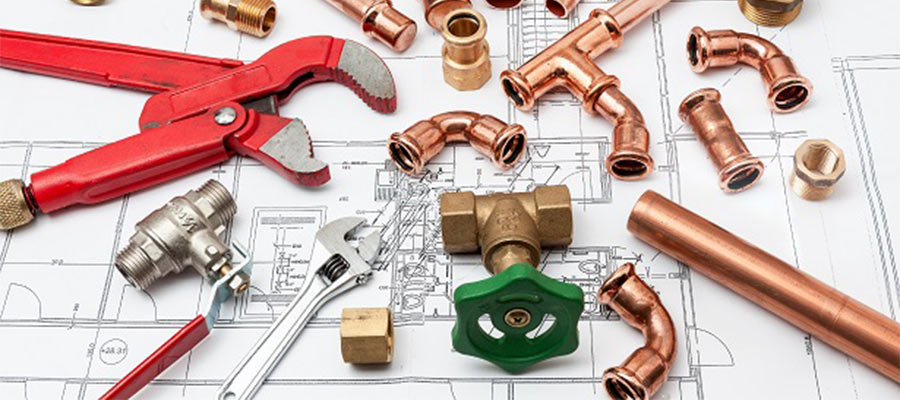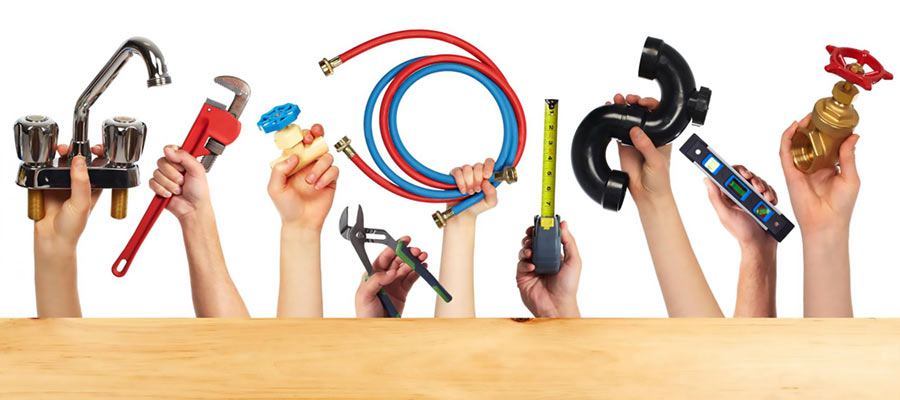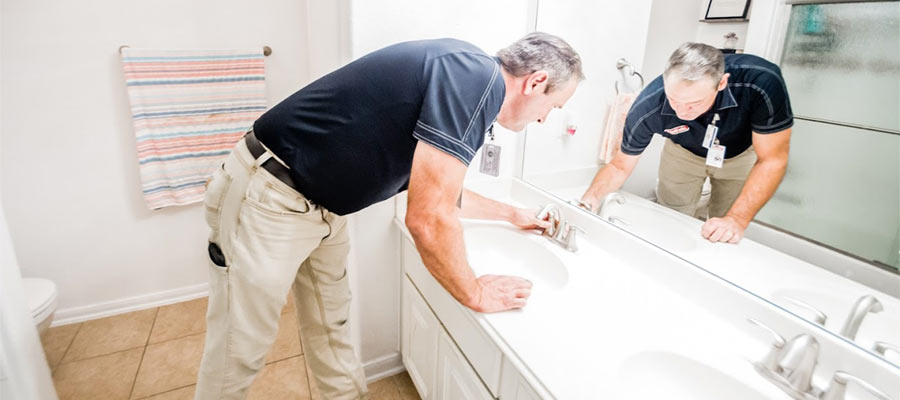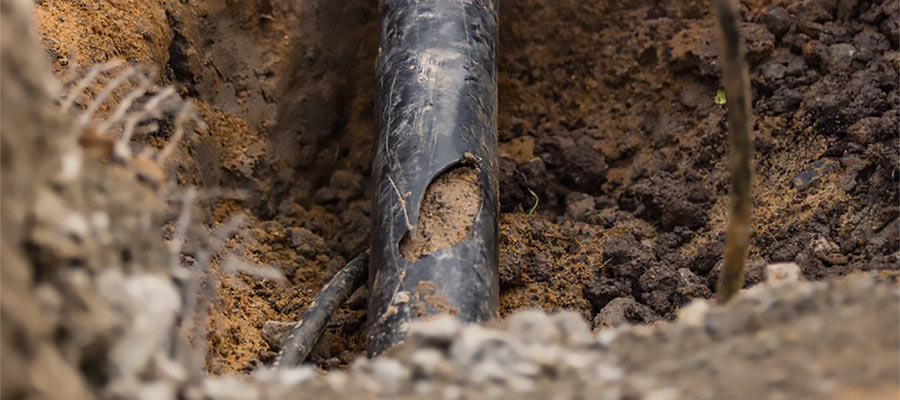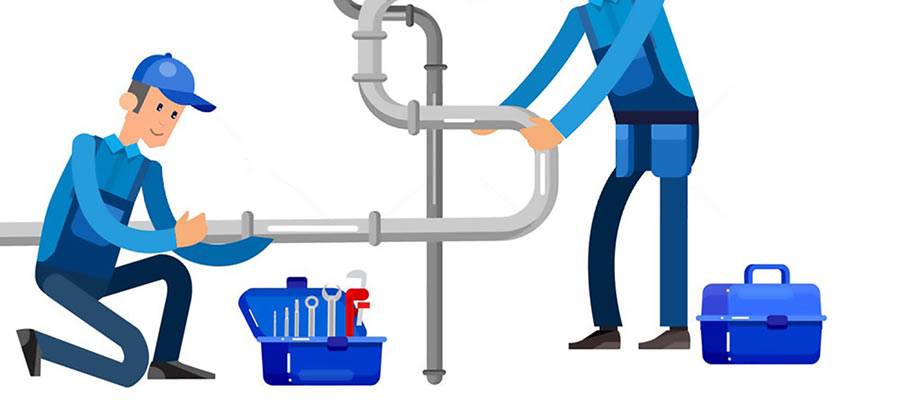If you’re facing a plumbing issue at home or at work, it can be tempting to take matters into your own hands and attempt to fix it yourself. But before you reach for that toolbox, let’s take a moment to consider the importance of hiring a professional plumbing contractor. These experts have the knowledge, experience, and skills necessary to tackle any plumbing problem efficiently and effectively. Not only can they save you time and effort, but they also provide a level of expertise that ensures the job is done right the first time. When it comes to your plumbing needs, don’t settle for less – trust the professionals at John Moore Services. With their exceptional service and commitment to customer satisfaction, you can rest easy knowing that your plumbing is in the best hands. Contact John Moore Services at (713) 730-2525 or visit their website at https://plumbing.johnmooreservices.com for all your plumbing needs.
When it comes to plumbing issues in your home or business, it can be tempting to try and tackle them yourself. However, there are numerous benefits to hiring a professional plumbing contractor that far outweigh the potential risks and challenges of DIY plumbing. From ensuring quality workmanship to providing comprehensive plumbing services, a professional plumbing contractor offers expertise, efficiency, and peace of mind. That’s why it’s important to consider hiring a professional plumbing contractor, like John Moore Services, for all your plumbing needs.
Quality and Experience
One of the primary advantages of hiring a professional plumbing contractor is the assurance of quality and experience. Professional plumbers undergo extensive training and have the expertise needed to tackle any plumbing issue. They are well-versed in different plumbing systems, ensuring that they can effectively address any problem that may arise. When you hire a professional plumbing contractor, you can expect high-quality workmanship. These experts are committed to delivering top-notch service, using premium products and materials to ensure long-lasting results. Their knowledge and experience enable them to provide solutions that not only fix immediate issues but also prevent future plumbing problems.
Safety and Compliance
Safety should be a top priority when it comes to plumbing projects, as improper handling of plumbing systems can lead to accidents and injuries. Hiring a professional plumbing contractor ensures that all work is done in compliance with building codes and safety regulations, reducing the risk of accidents and injuries. Additionally, professional plumbers are trained in the proper handling and disposal of hazardous materials commonly found in plumbing systems. They have the necessary equipment and expertise to handle these materials safely, protecting both you and the environment. A professional plumbing contractor also adheres to safety protocols while working on your plumbing systems. Their experience and knowledge allow them to identify potential safety hazards and take appropriate measures to mitigate them, ensuring a safe working environment.
Time and Cost Savings
Time is valuable, and plumbing projects can be time-consuming, especially if you don’t have the necessary expertise. By hiring a professional plumbing contractor, you can save time and avoid the stress of trying to figure out complex plumbing issues on your own. Professional plumbers are well-versed in various plumbing systems and have the experience to efficiently and timely complete projects. They can quickly identify problems and provide effective solutions, minimizing downtime and disruptions to your daily routine. Moreover, professional plumbers have the expertise to proactively identify potential issues before they become major problems. By addressing these issues promptly, costly repairs and extensive damage can be avoided. Additionally, professional plumbers have access to wholesale materials and discounts, saving you money on plumbing supplies. When you choose John Moore Services as your plumbing contractor, you can rely on their efficiency and affordability. With their extensive experience and commitment to customer satisfaction, they will ensure that your plumbing needs are met in a timely and cost-effective manner.
Advanced Tools and Equipment
Another advantage of hiring a professional plumbing contractor is access to advanced tools and equipment. Plumbing systems have become increasingly complex over time, requiring specialized tools and diagnostic equipment for effective maintenance and repairs. Professional plumbers stay updated with the latest technological advancements in the plumbing industry and invest in state-of-the-art tools and equipment. Their access to specialized plumbing tools allows them to handle any plumbing issue effectively, even in hard-to-reach areas. By utilizing these advanced tools and techniques, professional plumbers can provide efficient and precise solutions. With John Moore Services, you can be confident that their professional plumbers have the necessary tools and equipment to handle any plumbing project. From high-tech diagnostic equipment to modern plumbing techniques, they have the resources to tackle any plumbing issue effectively.
Comprehensive Plumbing Services
One of the key benefits of hiring a professional plumbing contractor is the availability of comprehensive plumbing services. Whether you need the installation of new plumbing systems or repairs to existing ones, a professional plumbing contractor can handle it all. Professional plumbers have the knowledge and expertise to install and repair various plumbing systems, including pipes, fixtures, and water heaters. They can also assist with drain cleaning and unclogging, ensuring that your plumbing systems function optimally. If you’re considering upgrading your fixtures or installing water filtration systems, a professional plumbing contractor can offer guidance and perform the necessary installations. Additionally, they can provide leak detection and repair services, addressing any issues related to water leaks promptly.John Moore Services offers a wide range of comprehensive plumbing services. Whether you require installation, repairs, or maintenance, their team of professional plumbers is well-equipped to handle all your plumbing needs.
Emergency Response
Plumbing emergencies can occur at any time, and having access to a professional plumbing contractor during such situations is crucial. Professional plumbers understand the urgency of plumbing emergencies and offer 24/7 availability to assist you when you need them most. With their rapid response time, professional plumbers can quickly assess the situation, provide effective emergency solutions, and prevent further damage. They have the expertise and resources to handle emergency repairs promptly, minimizing the impact of plumbing emergencies on your property. John Moore Services understands the importance of emergency response and is available around the clock to address any plumbing emergency. Their team of highly skilled plumbers is always ready to provide quick and effective solutions, ensuring your peace of mind.
Warranty and Insurance
When you hire a professional plumbing contractor, you gain the added advantage of warranties and insurance. Professional plumbers stand by their workmanship and provide warranties on their services, giving you confidence in the quality of their work. With a workmanship warranty, you can rest assured that any issues arising from the plumbing work will be addressed at no additional cost to you. This warranty provides you with peace of mind, knowing that your investment is protected. Liability insurance is another important aspect of hiring a professional plumbing contractor. Accidents and damages can happen during plumbing projects, and liability insurance provides protection against any unforeseen circumstances, alleviating any financial burden that may arise from such incidents. By choosing John Moore Services, you benefit from their workmanship warranty and liability insurance. Their commitment to customer satisfaction extends beyond the completion of the project, ensuring that you are fully covered and protected.
Up-to-Date Knowledge and Training
The plumbing industry is dynamic, with codes, regulations, and technological advancements constantly evolving. Professional plumbing contractors stay updated with the latest plumbing codes and regulations, ensuring that their work complies with legal requirements. Staying abreast of technological advancements is also critical in providing efficient and effective plumbing solutions. By investing in continued education and training, professional plumbers keep their knowledge and skills up to date. They implement industry best practices and use the most advanced techniques to deliver exceptional results. When you hire a professional plumbing contractor, like John Moore Services, you can be confident that their team is knowledgeable about the latest plumbing trends and techniques. They continuously update their expertise to provide you with the best possible solutions for your plumbing needs.
Expert Advice and Recommendations
Another advantage of hiring a professional plumbing contractor is the expert advice and recommendations they offer. Professional plumbers can assess your plumbing systems, identify potential issues, and provide informed recommendations for improvements or upgrades. By leveraging their experience and expertise, professional plumbers can help you make informed decisions regarding your plumbing systems. They can suggest energy-efficient solutions, cost-saving measures, and recommend products that best fit your needs and budget. John Moore Services takes pride in their commitment to exceptional customer service. Their professional plumbers will go the extra mile to provide you with expert advice and recommendations, ensuring that you make the best choices for your plumbing requirements.
Building Long-Term Relationships
Establishing a long-term relationship with a professional plumbing contractor offers numerous benefits. As you continue to work with the same plumbing contractor over time, a sense of trust and reliability develops. You can rely on their expertise and experience, knowing that they are familiar with your plumbing systems and needs. A continued maintenance and service relationship with a professional plumbing contractor ensures that your plumbing systems are well-maintained and operate optimally. Regular maintenance can prevent potential issues from escalating into costly repairs, saving you time and money in the long run. Preferred customer benefits are often a part of long-term relationships with professional plumbing contractors. These benefits may include priority scheduling, discounts on services and materials, and access to exclusive offers, further enhancing the value of your ongoing partnership. When you choose John Moore Services as your plumbing contractor, you can expect to build a long-term relationship based on trust and reliability. Their team of professionals is dedicated to providing exceptional service and nurturing relationships with their customers, ensuring your peace of mind and satisfaction. In conclusion, hiring a professional plumbing contractor offers a multitude of benefits that far surpass the potential risks and challenges of DIY plumbing. From quality workmanship and compliance with safety regulations to time and cost savings, a professional plumbing contractor like John Moore Services provides expertise, efficiency, and peace of mind. By entrusting your plumbing needs to a professional, you can rest assured knowing that your plumbing systems are in capable hands, allowing you to focus on the more important things in life. So, the next time you have a plumbing issue, don’t hesitate to reach out to a professional plumbing contractor for the best results. Contact John Moore Services at (713) 730-2525 or visit our website to experience their top-notch plumbing services and start building a long-term relationship with a trusted plumbing contractor.

